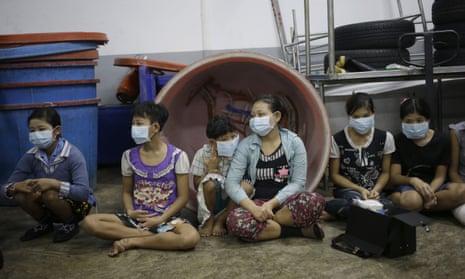The clothes you are wearing, the food you ate for dinner last night, and the component parts of your mobile phone – who made them, and how? Maybe they have a sticker or stamp that guarantees the environment wasn’t harmed, that any animals were treated humanely, or that workers were treated well.
What if those claims aren’t true? And what’s more, what if the audits that produce those stamps make labour conditions and environmental standards worse by preventing governments from regulating and legislating? That is the claim in a new report (pdf) released today from the Sheffield Political Economy Research Institute, part of Sheffield University.
The report, based on interviews with business executives, NGOs, supplier firms and auditors, is blunt in its condemnation: “ultimately the audit regime is ‘working’ for corporations, but failing workers and the planet. Audits are ineffective tools for detecting, reporting, or correcting environmental and labour problems in supply chains. They reinforce existing business models and preserve the global status quo.”
The report’s authors cite the collapse of the Rana Plaza garment factory in Bangladesh in 2013 and the Guardian investigation into human slavery in the Thai shrimp industry in 2014. While both have been extensively documented, the authors point out that what has been less well reported is the fact that both took place within certified, audited supply chains. Paul Lister, who is responsible for Primark’s ethical trading team, admitted that Primark had twice audited the Rana Plaza factory before it collapsed.
The reporting industry
Multinational corporations hire private auditors to inspect the factories in their supply chains. As a result, auditing has become an industry in itself, with leagues of assessors writing reports about voluntary codes.
The report argues that the voluntary nature of the auditing process means some corporations are prioritising the environment over labour concerns. It says businesses prioritise environmental issues over labour concerns because there is a more measurable and established business case for the environment, and environmental concerns translate more easily into business efficiency and financial gains.
Another major concern is that corporate control over the audit process means companies are able to dictate the extent of the audit. One auditor told the report’s authors “we will audit as far down as the brand wants to go”. This potentially misses subcontractor arrangements – often a huge and vulnerable section of supply chains.
The growth of corporate audit regimes has been interpreted by governments as a reason to step back from regulating the actions of corporations, the report argues, instead trusting corporations to self-monitor. By embracing and promoting audits, it says, corporations “have been able to deflect pressure” for stricter state and international regulation.
“Arguably it is the unsustainable business models of large corporations, which are reliant on cheap labour and environmental degradation, that drive abuses within supply chains,” says one of the report’s authors, Genevieve LeBaron. “Yet corporations, by working with a growing audit industry, are presenting themselves as the solution to the abuses.”
The report argues that corporations get to look ethical and responsible while legitimising an economy that promotes consumption and environmental degradation.
The Rainforest Alliance, which allows products to carry its seal where it says “rigorous environmental, social and economic criteria” have been met, is mentioned in the report for its certification of tea estates which have been accused of illegal labour practices.
Edward Millard, acting director for Asia-Pacific in the Rainforest Alliance’s field implementation group, says: “Any breach of local laws or non-compliance of the standards of the Sustainable Agriculture Network, which are the basis of Rainforest Alliance certification, are investigated immediately and appropriate action is taken, up to and including decertification of farms. Farms will need to correct any unacceptable conditions within an agreed upon time period; certification will be cancelled if a farm fails to meet these requirements.” The Rainforest Alliance has now stripped one plantation of the seal.
If auditing is failing as a way to enforce standards, what measures could protect people and planet? LeBaron believes governments around the world must resume a more active role and put more boots on the ground to monitor and enforce labour and environmental standards. “Inspectorates need more funding and a stronger mandate, and workers need to be empowered to exert their rights to prevent abuses in the first place,” she says.

Comments (…)
Sign in or create your Guardian account to join the discussion